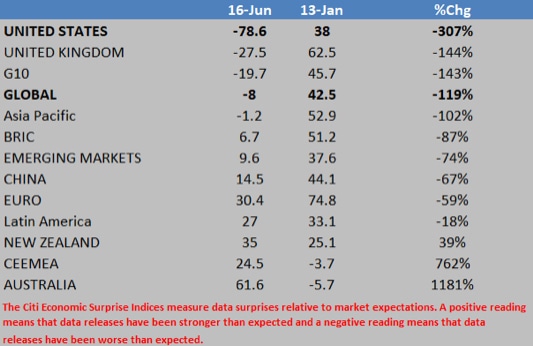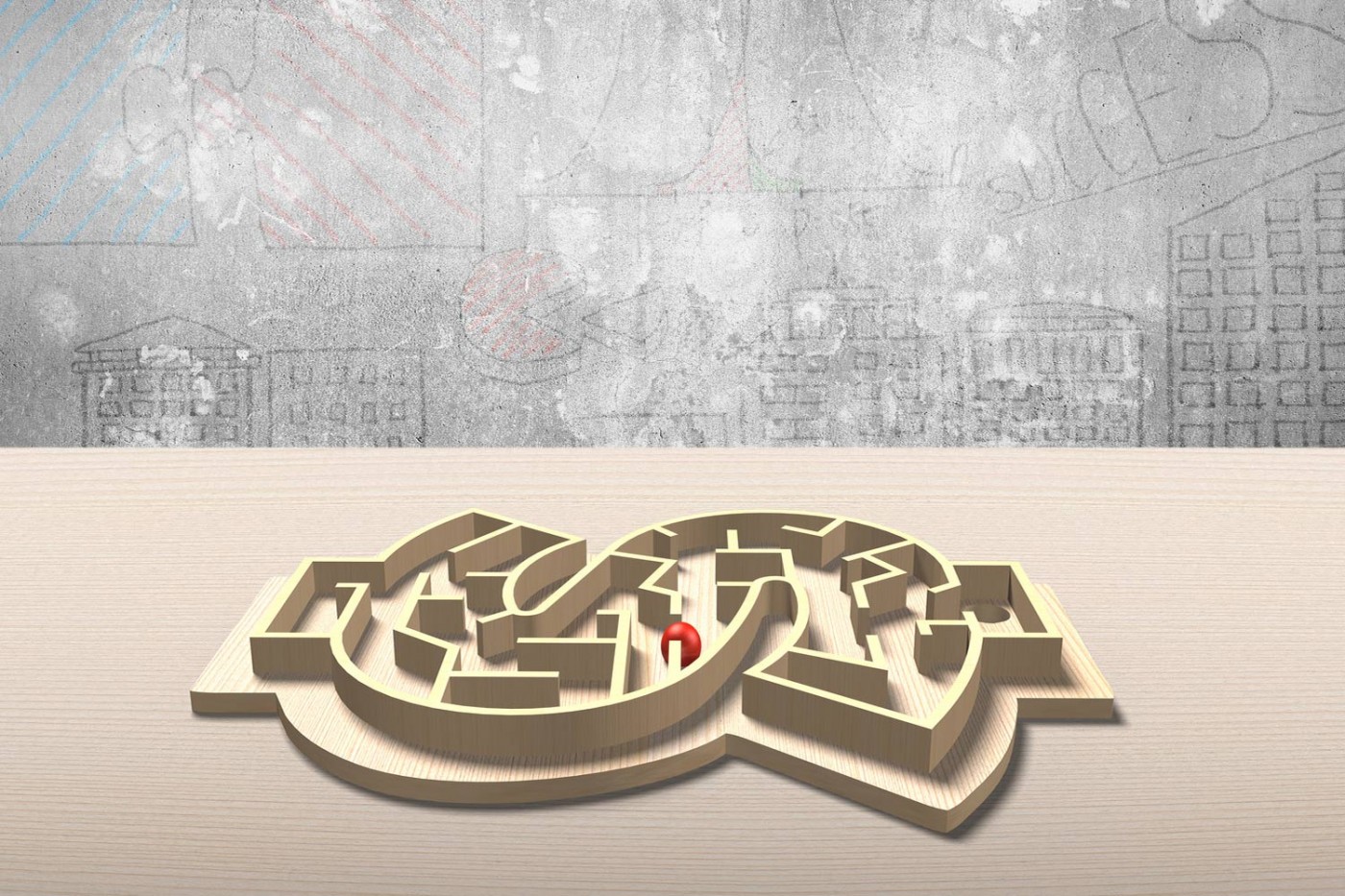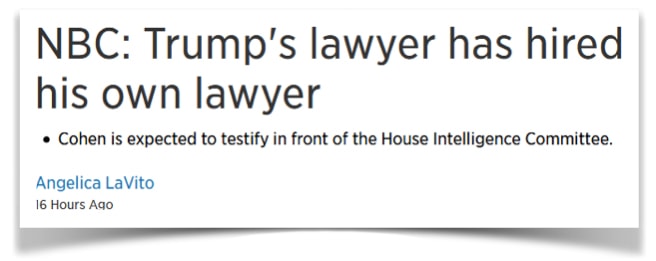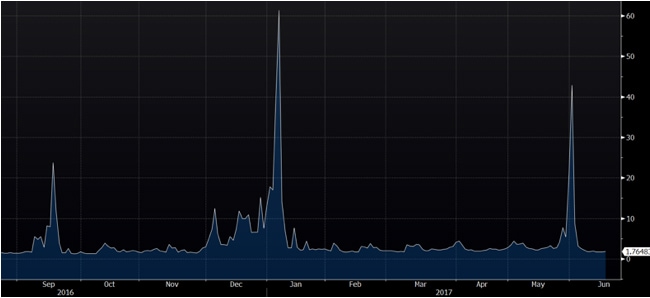Random Thoughts on China and Investing Made Complicated
Politics Bash
It is politics not financial markets hogging the limelight but stunned markets are rising above it all, in defiance of the Federal Reserve’s threats to hike rates again and reduce their balance sheet, leaving more bonds on the street because we know Gary Cohn has been tasked to find a new FED chairperson.
No child would aspire to be a politician with such bad press and the fail rate we are witnessing this week as we see the UK government bashed (yet) again just after their gridlocked elections, and as we consider the upheaval established French political parties and as we read about politically motivated shootings of politicians in America where we have a US President and now the US Vice President getting personal lawyers and the US President’s lawyer hiring a lawyer for himself. It is no wonder the House of Cards’ actors are predicting that they would be out of their jobs.
The Grenfell Tower fire in London could well be the final nail in the coffin for the unaddressed wealth gap and government austerity that could kick other populist-leaning non-dictatorship governments in the world into action which means the EM nations should be safe enough, given their broken or less than perfect political systems that give little freedom of choice. As a thought, if Grenfell Towers had happened in China, the case would be closed even before it is opened, somebody or more to be sentenced to hang or with death of some form, with compensation from the State or landlords that no one better complain about, all reported in the right undertones by the media.
Singaporeans and their observers also had their faiths slightly shaken this week by a feud within the Prime Minister’s family taken public, to cast a pall over hot and sweltering Singapore although it is hard to see a stunning decline in respect for a government like what is happening in America as Gallup has found. As it turns out, the Gallup poll also found a strong correlation between the knowledgeable folks, as opposed to the ignorant, and growing pessimism on their leaders.
What can we say but Rejoice! And, give thanks for the prosperous times we are living in now that the only major economy in the world in a technical recession is South Africa, slipping in their stats last week to take over from Brazil which recently roared out of theirs. It would be unimaginable to envisage the level of dissent we are witnessing, exacerbated by social media, if, God forbid, we are living through a global recession like the one of 2009/2010.
Yes, there will be mayhem and anarchy of sorts if that happens and it is all we can do right now to hope that the Citi Economic Surprise Index that measures positive data surprises got it Wrong by putting US’s economic surprise as the worst in the world this week with the whole world starting to look a tad weaker from the start of the year except for the Antipodeans of Australia and NZ.

Table of 6M change in economic surprises.
While it does not look like the Trump Hope Trade is fading with the S&P 500 closing the week just off its historic highs, there is only so many dreams can be built on his 1-page tax plan and no substantial policies to date as the US debt ceiling looms. Banks are not looking exactly robust with Citi, along with Goldman, JPM and Morgan Stanley, forewarning markets of a second quarter slump in their trading revenues.
Yet, with a US President that equates stock market performance to “great economic news”, perhaps that is all we need for drastic measures and action from him when stocks correct lower after nearly a year without a 5% drawdown.
End of Bash
Flocking To Or From China?
It makes sense to revisit China this week because of the latest news on the detention of Anbang’s chairman which is the biggest thing since the Bo Xilai because this chap is the grandson-in-law of none other than the late Deng Xiaoping.
Billionaires and CEO disappearances are not uncommon in China’s Asia or Russia, for that matter, which should not give Donald Trump any ideas for his political rivals who are not billionaires.
Question Du Jour
One question that plagues many of us would be why money is always attempting to flee China? That the authorities had to enact a clampdown or rather “capital controls” of sorts earlier this year that led to many overseas acquisition attempts, about US 75 bio worth, to fall through?
Why would the trade of the past decade—China, that the rest of the world is clamouring to be part of, be rejected by her very own citizens as we hear of credit cards that cannot be used to buy single premium insurance in Hong Kong these days.
China epitomises the entire concept of EM but somehow money is always trying to leave her shores. Surely, there cannot be such levels of illegal activities or for tax evasion purposes in such a “policed” state?
China is Complicated
My good friend had to complete a survey recently on the Chinese bond markets and we had a good laugh as she recounted her responses.
When asked what were the risks or impediments to investing in the local Chinese bond markets, her answer was “none of the above” choices that ranged between the mundane “lack of market depth” and “insufficient benchmark bonds”, leaving behind some hard truths in the “Comments” field.
For one, it is a 2-tiered market with different levels of access for outsiders in the various asset classes with quotas to match. Individuals can forget about accessing the bond markets directly because it is still an institutional playing field.
Secondly, there are simply too many benchmark rates to follow in China; the PBOC repo rates, market repo rates, savings rates, lending rates, lending facilities rate, the SHIBOR, CHIBOR, the China Foreign Exchange Trading System (CFETS) and not to mention the CNY-CNH basis.
Thirdly, regulations are always changing. On Friday, China lifts 27 curbs for foreign investment in Free Trade Zones, as announced in Mandarin on its website which brings us to another point that announcements are made all over the place and unless you are tuned in, the information you receive would be hours, if not days late and from third-hand accounts, interpreted (for innuendos) and translated.
Just to throw more confusion in the air, last month, China reinstated the QDLP, Qualified Domestic Limited Partnership, program after its suspension in 2015 when the stock market crashed. It allows foreign fund managers to raise money onshore to be invested overseas and is administered by the Shanghai Municipal Government Financial Services Office but SAFE is the overseer.
Why is all this important?
Because investors spend most of their time second-guessing intentions in the closed market and whether their investments are going to get a boost from policy actions on liquidity and currency. This goes for both bonds and stocks. That is how the entire market became driven by sentiments instead of fundamentals and valuations.
Thus, watching the CNY fixing daily and the short-term funding rates has become every serious investor and speculator’s unhealthy obsession.
Disadvantaged From The Start
Between getting the various websites right for abrupt news and announcements which imply the fundamental need to read and analyse in Mandarin, there is also the need to comb through chatter in the Weibo chatrooms and forums. It is about understanding the complexities of the corporate structure – cross holdings between companies, keepwell agreements, and the hierarchies within state-owned enterprises (which were allowed to fail since 2015) with different levels of state guarantees and more.
It is a struggle to keep up with spin-offs and subsidiaries, some subsidiaries created to just to make sales to another.
To keep things complicated, Chinese accounting standards are not fully aligned to international standards even if they are moving in the right direction. Yet, it all does not matter if the valuations which form the basis for the accounts are suspect which is the big problem many people have Chinese financials. Global banks like Stanchart were duped back in 2014 in a large scale fraud at Qingdao port, involving a company and its associates taking out multiple loans the same collateral.
Global Ambitions On Hold
We were too early in expecting last year for the second largest stock market in the world to ascend the global stage because it looks like they are not ready with short-term 1-day interest rates spiking above 20% on 3 occasions in the last 9 months.
The MSCI delivered a blow to local Chinese markets in March when they cut the number of China-listed firms considered for inclusion into their MSCI Emerging Market Index from 448 to 169. The results will be announced on 20 June and has led to the rally of the heavyweight A50 Index of the top 50 companies.
Who is to blame when billionaires are still disappearing and when we have 2016 bankruptcies growing at 54%, quadrupling in a decade, with bad debts at 11-year highs?
Corporate Governance and Accountability
Only close friends will confess their innermost doubts to you outside the professional arena where it would look pretty foolish to be negative about China for all the growth prospects of 1.3 billion people, especially with the launch of the One Belt and One Road project.
It is about how we had these “irrational” acquisitions in the past, for instance, the Anbang Insurance’s attempted US$14 bio takeover of Starwood Hotels and Resorts in 2016 after it acquired New York’s landmark Waldorf Astoria in 2015. What about the HNA Group, founded as a tourism and airline company, becoming the top shareholder of Deutsche Bank in April this year, holding nearly 10% of the stock and bidding for HSH Landesbank last month? HNA, described as “mysterious and powerful” had gone on a global shopping spree with 12 global transactions in 2017, including Singapore’s logistics company, CWT.
Anbang Insurance may have had their Deng Xiaoping related chairman detained at the pleasure of whoever is in charge, but it was reported by SCMP that mainland media had to pull their reports “questioning the ownership and funding of the big-spending conglomerate”, the HNA Group.
Privately-owned HNA is definitely holding the higher ground because there was also an attempt to buy a controlling stake in Forbes magazine just 2 months ago and they are suing an exiled billionaire for defamation. And there is more ground for them if the rumours of 3 casinos coming up in China are true—one supposedly located in Hainan.
** To round it up, Reddintelligence just reported a bizarre development out of HNA Group, that its shareholders will gradually donate their shares to a charity and that no Chinese officials or their relatives hold stakes which must be an important announcement.
Earlier this year, prominent Chinese billionaire, Xiao Jianhua, was abducted from the “unsafe” Four Seasons hotel in Hong Kong back to mainland China to “assist investigations” into the stock market crash of 2015.
One thing is clear, all the abductions, resignations and suicides (e.g. the suicide of the former chairman of Changjiang Securities last year), have not roiled the markets all that much and that the authorities are none too concerned with the surrounding publicity.
And one other thing is clear, there is still a lot of money trying to get out to buy inflated assets around the world as $75 billion worth of overseas deals were cancelled in 2016, still leaving 2016 with a record $94.2 billion worth of US and European assets bought by Chinese firms.
It Is Too Complicated And Strange
To be fair, it is not just the Chinese buying up stuff, the Russians are big players in NY and London real estate and there are too many millionaire and billionaire Russians who go missing or die mysteriously.
Perhaps it is all part of their “Going Out” policy, in line with the One-Belt-One-Road plan?
Yet it feels just strange when we live and invest in a world where Donald Trump could be impeached for improper meetings with Russians, who were apparently messing around with the US elections and we have this Ambang chap, who is no small fry in terms of family connections, detained which happens to be a regular thing in China going by the incomplete list published earlier this year which does not include the unreported cases.
It just boils down to accepting that these things happen in these powerful countries but is not accepted in America, accepting that the financial system and markets are complicated, accepting that the people China like to keep their funds offshore and accepting that we have to invest in China because that is the sensible thing to do.
All the same, it is getting harder to envisage governments elsewhere retain the trust of the citizens and those respect levels to rise anytime soon.







